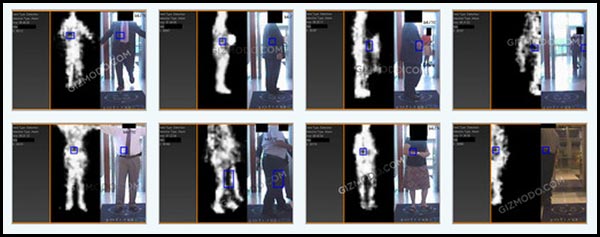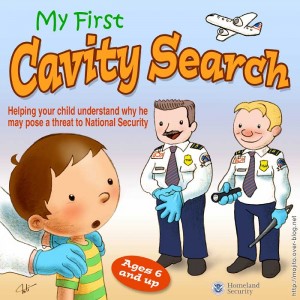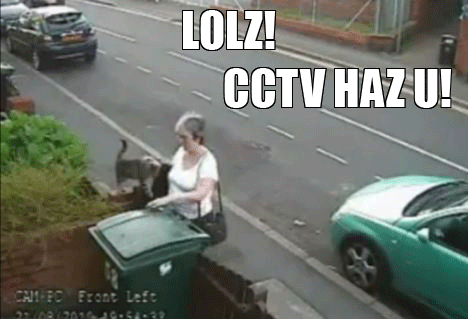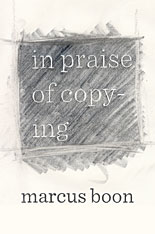 Marcus Boon: “I am uploading my new book onto the internet. Yes, I am. The book is not yet on the shelves, not yet touched by the mild boredom of commodification … OK, I’m copying again, from the introductory lines of Walter Benjamin’s famous essay “Unpacking My Library”, which media theorist Julian Dibbell riffed on in his dawn of the downloading age essay “Unpacking My Record Collection”. Those two excellent essays were concerned with the figure of the collector. But what concerns me here is, to use the title of another of Benjamin’s essays, “the author as producer”, and the act of donating a book, “my book”, to a library, if library is the right word for the place where my text is being deposited.
Marcus Boon: “I am uploading my new book onto the internet. Yes, I am. The book is not yet on the shelves, not yet touched by the mild boredom of commodification … OK, I’m copying again, from the introductory lines of Walter Benjamin’s famous essay “Unpacking My Library”, which media theorist Julian Dibbell riffed on in his dawn of the downloading age essay “Unpacking My Record Collection”. Those two excellent essays were concerned with the figure of the collector. But what concerns me here is, to use the title of another of Benjamin’s essays, “the author as producer”, and the act of donating a book, “my book”, to a library, if library is the right word for the place where my text is being deposited.
While I was finishing In Praise of Copying, I became interested in the circulation of texts. I wondered whether it was hypocritical to write a book that celebrates copying, while still slapping a copyright notice to the front of the book. There are easy ways out of this: I could say that what I’m doing is presenting a critique of contemporary society but that obviously I have to work pragmatically within existing economic conditions, even though I disapprove of them. There’s some truth to that. In fact, the copyright notice to many academic books is in the name of the publisher, not the author. When I talked to people at Harvard, they pointed out to me that in signing a book contract, I had already signed away most of the rights to the book, and that it was therefore more honest for the publisher to claim and look after the copyright. I could have requested that I retain the copyright, as I did with my first HUP published book, but I thought there was something persuasive about their argument. And that I don’t need to own the copyright in order to feel some sense of agency in relation to what I’d written.
But I still wanted to explicitly allow people to make copies of my book about copying. I asked Harvard whether this was possible and they said yes. As of October 1, 2010, the book has been available from Harvard’s website as a pdf, free to download, but with a creative commons license that restricts the uses of the copy. I wrote the following text to accompany the web page:
“Given the topic and stance of In Praise of Copying, I wanted the text to participate openly in the circulation of copies that we see flourishing all around us. I approached Harvard to discuss options and they agreed to make the book available as a PDF online. The PDF is freely available to anyone who wants to download it, but it does come with a creative commons license that sets some intelligent restrictions on what you can do with it. Although generosity is a wonderful thing, this isn’t especially intended as a utopian gesture towards a world in which everything is free. It’s recognition of the way in which copies of texts circulate today, a circulation in which the physical object known as the book that is for sale in the marketplace has an important but hardly exclusive role. A PDF of a book is not an illegitimate copy of a legitimate original but participates in other kinds of circulation that have long flourished around the book-commodity: the library book; the photocopy or hand-written copy; the book browsed, borrowed or shared. We all know these modes of circulation exist, as they continue to do today with online text archives.
Perhaps these online archives just make visible and more “at hand” something that was happening invisibly, more distantly, but continuously before. At the same time, something new is going on. The physical book today is one copy, one iteration of a text among others. What that means for publishers, writers, readers and other interested parties is something that we are working out – on this webpage and elsewhere.”
Harvard University Press Catalog
 The same day when Julian Assange was arrested, the U.S. Department of State announced the “UNESCO World Press Freedom Day 2011“.
The same day when Julian Assange was arrested, the U.S. Department of State announced the “UNESCO World Press Freedom Day 2011“.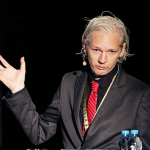
 Julian Assange has been
Julian Assange has been 



